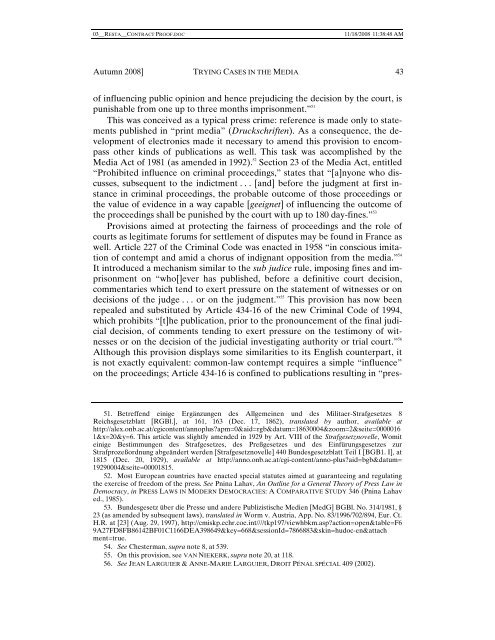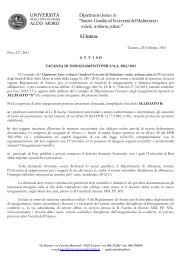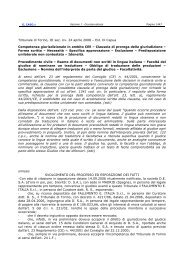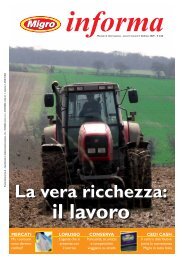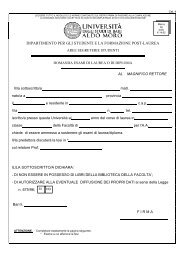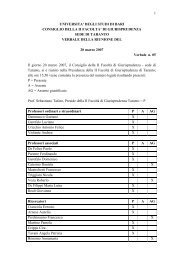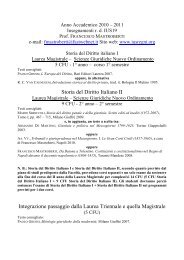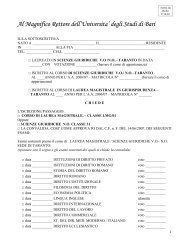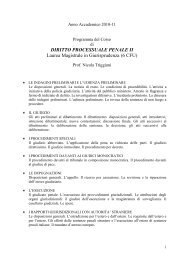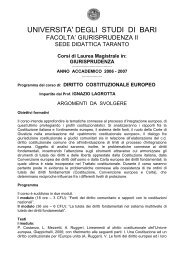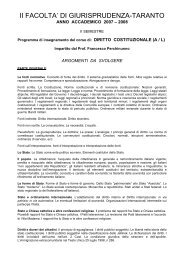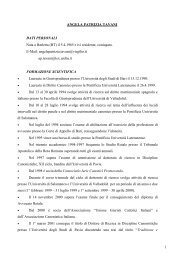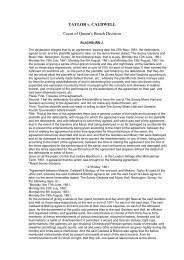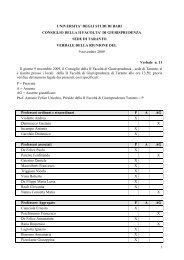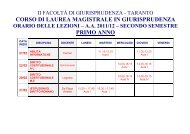TRYING CASES IN THE MEDIA: A COMPARATIVE OVERVIEW
TRYING CASES IN THE MEDIA: A COMPARATIVE OVERVIEW
TRYING CASES IN THE MEDIA: A COMPARATIVE OVERVIEW
You also want an ePaper? Increase the reach of your titles
YUMPU automatically turns print PDFs into web optimized ePapers that Google loves.
03__RESTA__CONTRACT PROOF.DOC11/18/2008 11:38:48 AMAutumn 2008] <strong>TRY<strong>IN</strong>G</strong> <strong>CASES</strong> <strong>IN</strong> <strong>THE</strong> <strong>MEDIA</strong> 43of influencing public opinion and hence prejudicing the decision by the court, ispunishable from one up to three months imprisonment.” 51This was conceived as a typical press crime: reference is made only to statementspublished in “print media” (Druckschriften). As a consequence, the developmentof electronics made it necessary to amend this provision to encompassother kinds of publications as well. This task was accomplished by theMedia Act of 1981 (as amended in 1992). 52 Section 23 of the Media Act, entitled“Prohibited influence on criminal proceedings,” states that “[a]nyone who discusses,subsequent to the indictment . . . [and] before the judgment at first instancein criminal proceedings, the probable outcome of those proceedings orthe value of evidence in a way capable [geeignet] of influencing the outcome ofthe proceedings shall be punished by the court with up to 180 day-fines.” 53Provisions aimed at protecting the fairness of proceedings and the role ofcourts as legitimate forums for settlement of disputes may be found in France aswell. Article 227 of the Criminal Code was enacted in 1958 “in conscious imitationof contempt and amid a chorus of indignant opposition from the media.” 54It introduced a mechanism similar to the sub judice rule, imposing fines and imprisonmenton “who[]ever has published, before a definitive court decision,commentaries which tend to exert pressure on the statement of witnesses or ondecisions of the judge . . . or on the judgment.” 55This provision has now beenrepealed and substituted by Article 434-16 of the new Criminal Code of 1994,which prohibits “[t]he publication, prior to the pronouncement of the final judicialdecision, of comments tending to exert pressure on the testimony of witnessesor on the decision of the judicial investigating authority or trial court.” 56Although this provision displays some similarities to its English counterpart, itis not exactly equivalent: common-law contempt requires a simple “influence”on the proceedings; Article 434-16 is confined to publications resulting in “pres-51. Betreffend einige Ergänzungen des Allgemeinen und des Militaer-Strafgesetzes 8Reichsgesetzblatt [RGBl.], at 161, 163 (Dec. 17, 1862), translated by author, available athttp://alex.onb.ac.at/cgicontent/annoplus?apm=0&aid=rgb&datum=18630004&zoom=2&seite=00000161&x=20&y=6. This article was slightly amended in 1929 by Art. VIII of the Strafgesetznovelle, Womiteinige Bestimmungen des Strafgesetzes, des Preßgesetzes und des Einfürungsgesetzes zurStrafprozeßordnung abgeändert werden [Strafgesetznovelle] 440 Bundesgesetzblatt Teil I [BGB1. I], at1815 (Dec. 20, 1929), available at http://anno.onb.ac.at/cgi-content/anno-plus?aid=bgb&datum=19290004&seite=00001815.52. Most European countries have enacted special statutes aimed at guaranteeing and regulatingthe exercise of freedom of the press. See Pnina Lahav, An Outline for a General Theory of Press Law inDemocracy, in PRESS LAWS <strong>IN</strong> MODERN DEMOCRACIES: A <strong>COMPARATIVE</strong> STUDY 346 (Pnina Lahaved., 1985).53. Bundesgesetz über die Presse und andere Publizistische Medien [MedG] BGBl. No. 314/1981, §23 (as amended by subsequent laws), translated in Worm v. Austria, App. No. 83/1996/702/894, Eur. Ct.H.R. at [23] (Aug. 29, 1997), http://cmiskp.echr.coe.int////tkp197/viewhbkm.asp?action=open&table=F69A27FD8FB86142BF01C1166DEA398649&key=668&sessionId=7866883&skin=hudoc-en&attachment=true.54. See Chesterman, supra note 8, at 539.55. On this provision, see VAN NIEKERK, supra note 20, at 118.56. See JEAN LARGUIER & ANNE-MARIE LARGUIER, DROIT PÉNAL SPÉCIAL 409 (2002).


